George Bolt pulls his chinstrap tight and marches, hand in hand with the other captains, to midfield as 3,642 fans flood into the Royal Stadium for the 2023 season opener. For many, this looks like almost every other Bethel football game, but for Bolt, it’s much different. Up until this point, he has spent nearly every fall Saturday backing up four-time All-MIAC quarterback Jaran Roste. Today, he takes the field as QB1. Not second string, not third, but first. This is “uncharted territory,” as he puts it.
Bolt never got nervous before games as the safety for Grand Rapids Christian High School, but in the quarterback position for Bethel, things are different.
You’ve done this in practice. Your defense is good. Just rely on what you know to do.
Before the COVID-19 pandemic, Bolt didn’t plan on coming back for a fifth year of football. After student teaching in Indonesia during spring 2023, he was on track to graduate and move into a full-time teaching position in the fall.
But after being second-string for the past four years, Bolt was eager to step out onto the turf as starting quarterback for the first time since he stepped in for an injured Roste Sept. 10 last season. He knew he had put the work in.
Would it be worth it to put his life on hold?
Going back to play another year of football in hopes of securing the starting role wouldn’t allow him to work full-time. He would also have to pay out of pocket for a single class in order to be eligible to use his COVID-19 waiver from the 2021 season.
After going back and forth, talking to his parents, coaches and friends, he decided it was.
“I could get hurt and not play at all,” Bolt said. “But I was able to say to myself, ‘I still enjoy going to football practice and being around the team enough that if the worst case scenario happens, I’m not going to be sour.’”
Coming back as a fifth-year also meant there would be almost a five-year age gap between him and the youngest players on the team. Rather than chatting with teammates in the halls between classes, he would be monitoring the halls with a Mr. Bolt name tag. He would be trading in team meals in the Dining Center for turkey and provolone sandwiches in a lunchbox.
“It feels like you’re kind of one foot in one world and one in the other,” Bolt said.
An average day for Bolt starts at 7 a.m. when he meets with Offensive Coordinator A.J. Parnell, then gets ready for the day and jumps in his car to go to substitute teach for a nearby school. Last week he was at Chippewa Middle School and St. Anthony Middle School. At the end of the school day, he hustles back to Bethel, gets dressed and taped and practices until 6 p.m. After practice, he goes home, showers, eats dinner and works on his Covenant Relationships class. If he has time, he ends the night watching film. On the side, he landscapes and donates plasma for some extra cash.
“I like subbing at different schools because I can reuse my teacher outfits and nobody even knows,” Bolt said.
—
Fifth-year soccer player Isaac Howell wasn’t ready to give up the high level of competition that college sports brings. After fighting through different injuries the past two seasons and being in his gap year before going to medical school, it just made sense.
“I’ve also felt like I still had more to give on the soccer field and that there was unfinished business with what we could accomplish this year,” Howell said.
After making the decision to come back, Howell was picked as a captain for the third year in a row.
Soccer coach Jeremy Iwaszkowiec says he is thrilled to have Howell’s strength and skills on the field again this year, but what he’s most excited about is the leadership that takes place off the field.
“Our younger guys get another year with a solid dude who leads by example and kind of can help instill the culture of the program in one more class,” Iwaszkowiec said.
Like Bolt, Howell finds it difficult at times to balance his schedule as an adult in the working world and a student-athlete — but the camaraderie his team offers makes it all worth it.
“Most days it feels like I don’t have time for much else and my schedule is work, soccer, eat and then sleep. I’ve heard it said that if you’re coming back for a fifth year you have to really love it,” Howell said. “I’m thankful for the opportunity to come back, and even though it’s tough sometimes, it’s been more than worth it so far.”
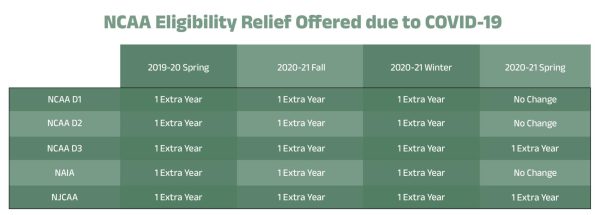
Before deciding to come back, Howell had to take one more thing into consideration. Is my return subtracting from the future of the program and young guys coming in? he asked himself.
“The players that come back take minutes, take opportunities, take reps. They take up space that would have been freed up for someone else to step into,” Iwaszkowiec said. “I think the cool thing about Isaac and the cool thing about our program is that I don’t care if you have a captain’s armband or not. If you’re a junior or senior, I expect you to lead. And I think Isaac’s humble enough to let other people step into the space and lead however they can. But it’s definitely something you have to be aware of.”
—
All student athletes whose seasons were affected by the COVID-19 pandemic from 2019 to 2021 were granted an extra year of eligibility for every season impacted. Traditionally, there is a four-year clock for athletes at the Division III level. For seniors, this ruling meant a chance to finish out their college careers. For others, it might mean playing behind the same player for another year.
“I have players who are juniors now who are very talented, but have never had a starting role yet because we’ve had those super seniors come back,” Head Baseball Coach Brian Raabe said. “That’s tough for them, but that’s also the landscape of college athletics right now. Is it fair? Life isn’t fair.”
Raabe admits that in the last couple of years, he went into practices knowing who was going to play. That made it pretty easy, he said. This year, the team has positions that will need to be filled.
Associate Athletic Director for Compliance and Head Volleyball Coach Gretchen Hunt says only a handful of students use their COVID-19 waivers for those extra years. However, as a coach, it did take some getting used to.
“That regular rhythm of four years feels really natural,” Hunt said.
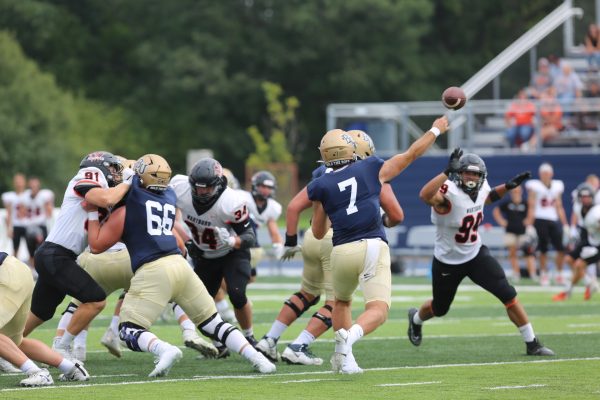
With that disruption in rhythm also comes a disruption in dynamics among coaches and players. But not necessarily in a bad way, Hunt says.
“Often [fifth-year athletes are] working jobs, they’re in graduate programs … they kind of have life figured out, and they’re not nervous around coaches,” Hunt said. “They’re more likely to speak up and to joke with you more.”
Raabe says his “super seniors” can pretty much run an entire practice on their own and acknowledges that his team has benefited from the COVID-19 waivers. Last year, with four fifth-years and three graduate students, the team won its second straight MIAC title, only the third in Bethel baseball history.
“Every year they’re here, they get bigger, faster, stronger, more knowledgeable,” Raabe said. “We have benefited from it, no doubt, but so has every other college program in the country.”
Despite the added fun and veteran skill the fifth-years bring to their teams, Hunt is not certain such a large age gap is great to have on a team.
For the football team, ages range from 18–28. Bolt agrees that this could be where things get tricky when it comes to the team’s dynamic, but at the end of the day “they have an obligation to put the best on the field.”
Unfortunately for the Royals’ home-opener football game against no. 16 Wartburg College Sept. 9, their best was not enough. Losing 16-2, Bethel totaled 203 offensive yards with its only points coming from a return on a blocked extra point. Bolt, with a total of 39 passing yards, did not return to the field for the second half.






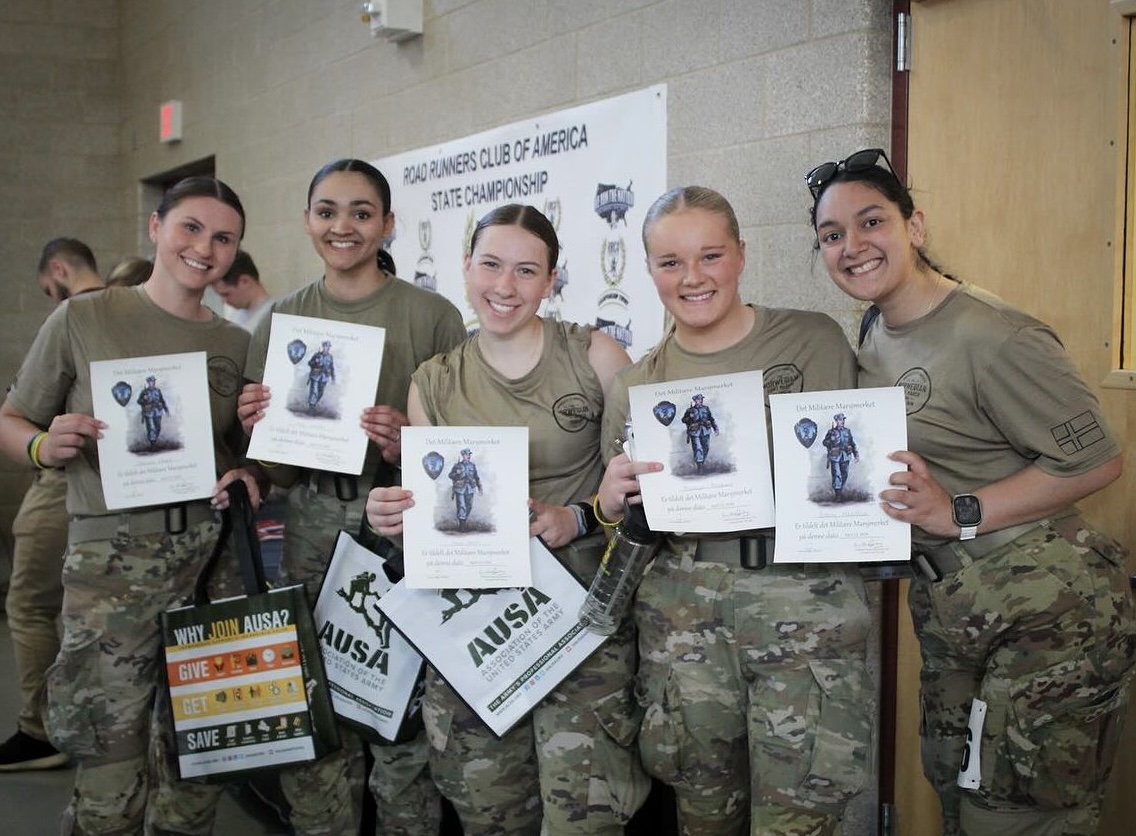
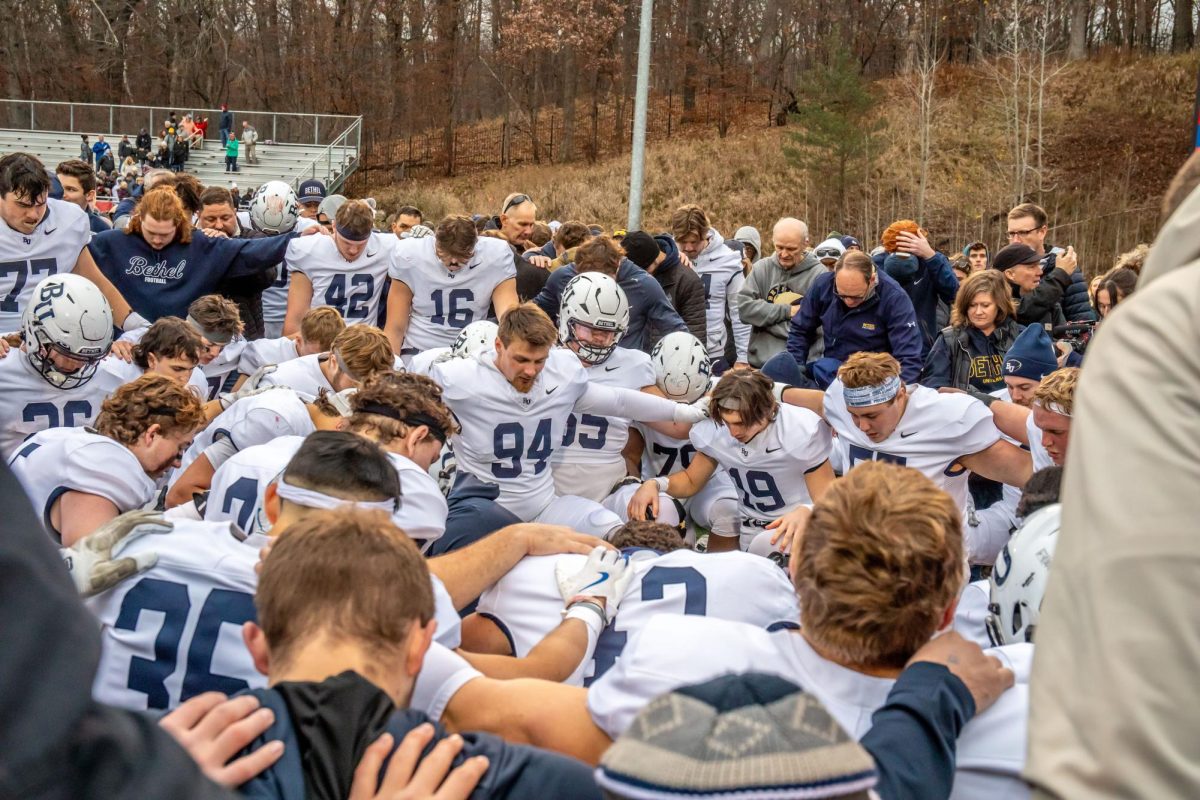
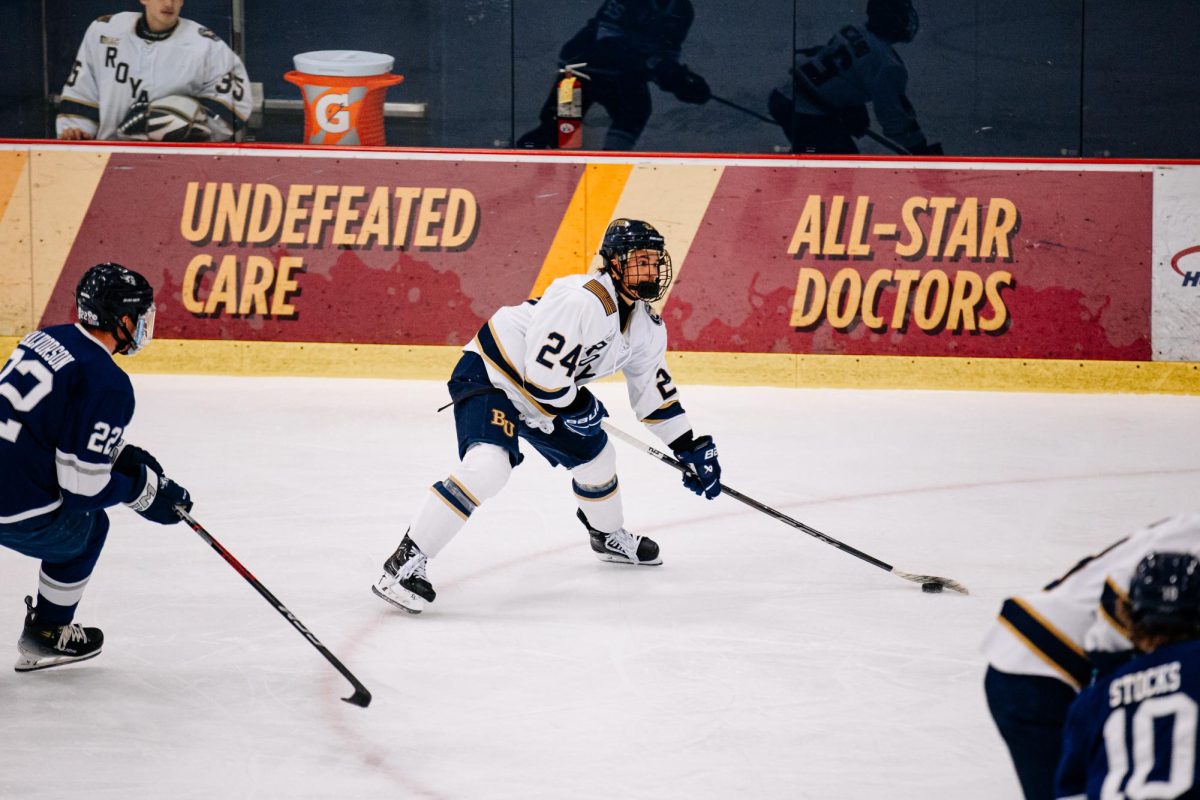
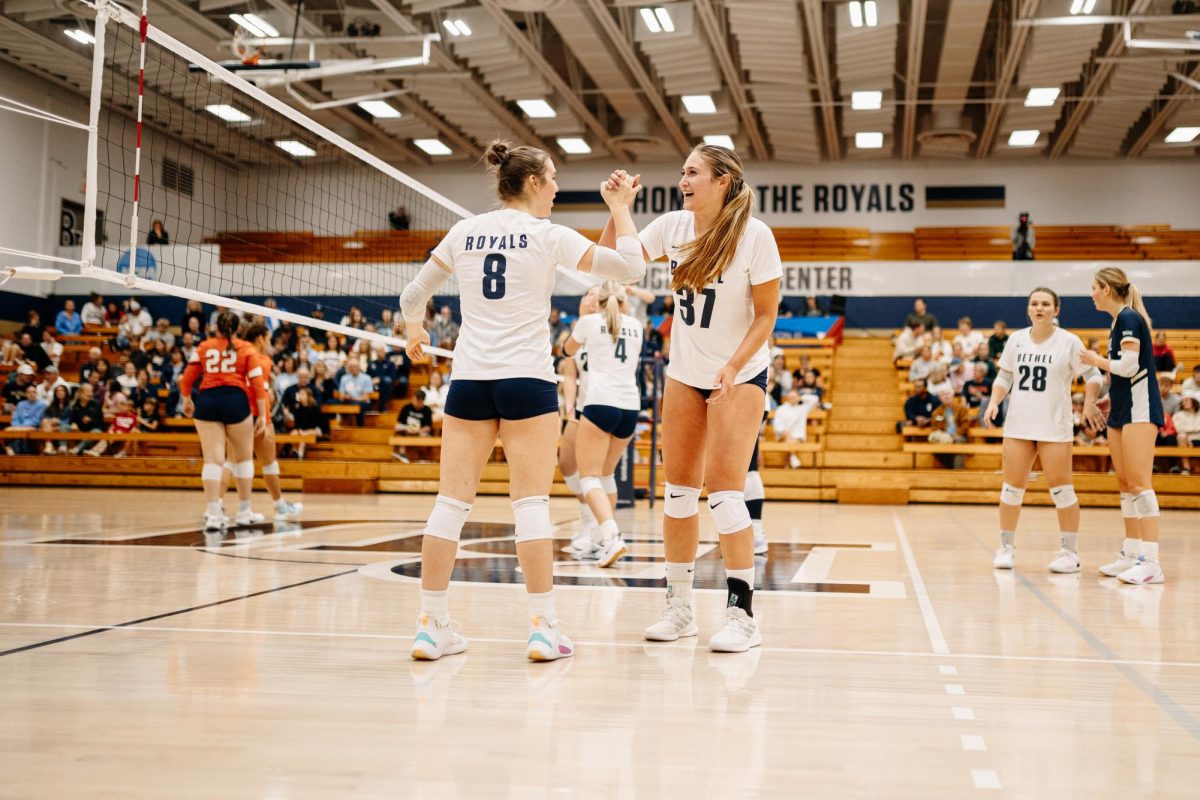
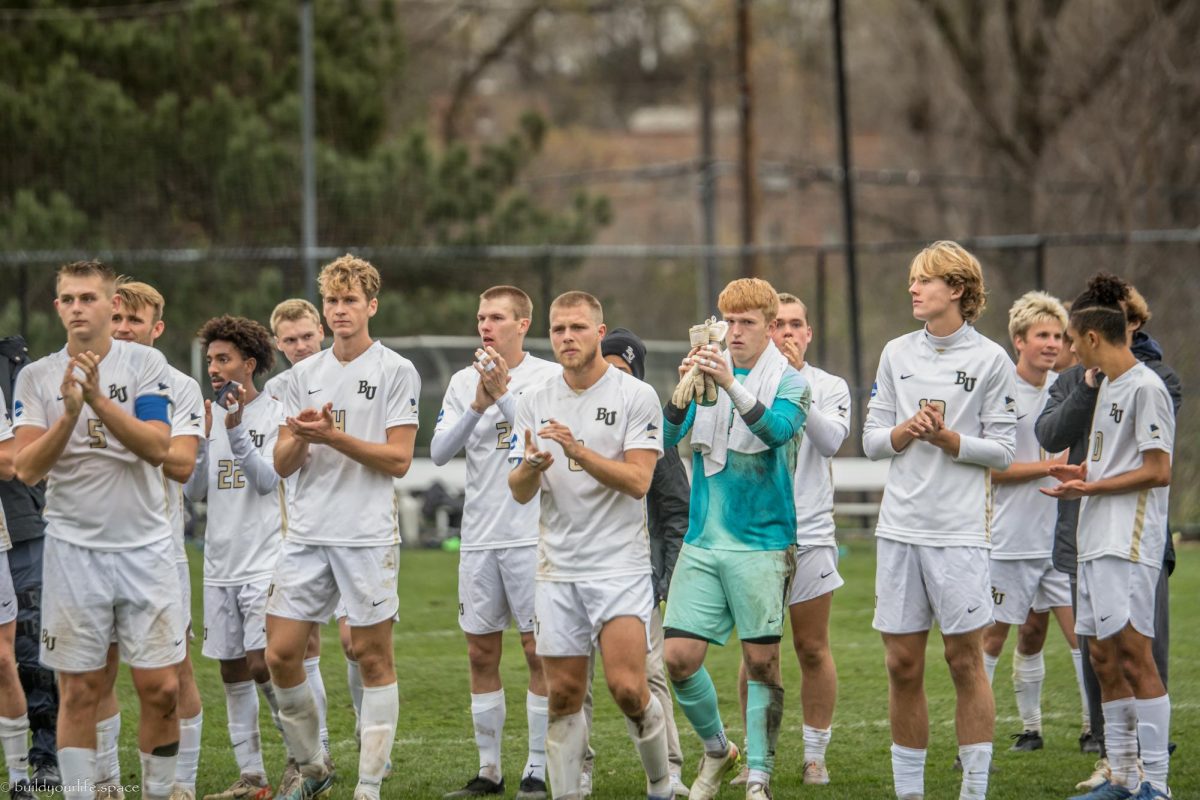
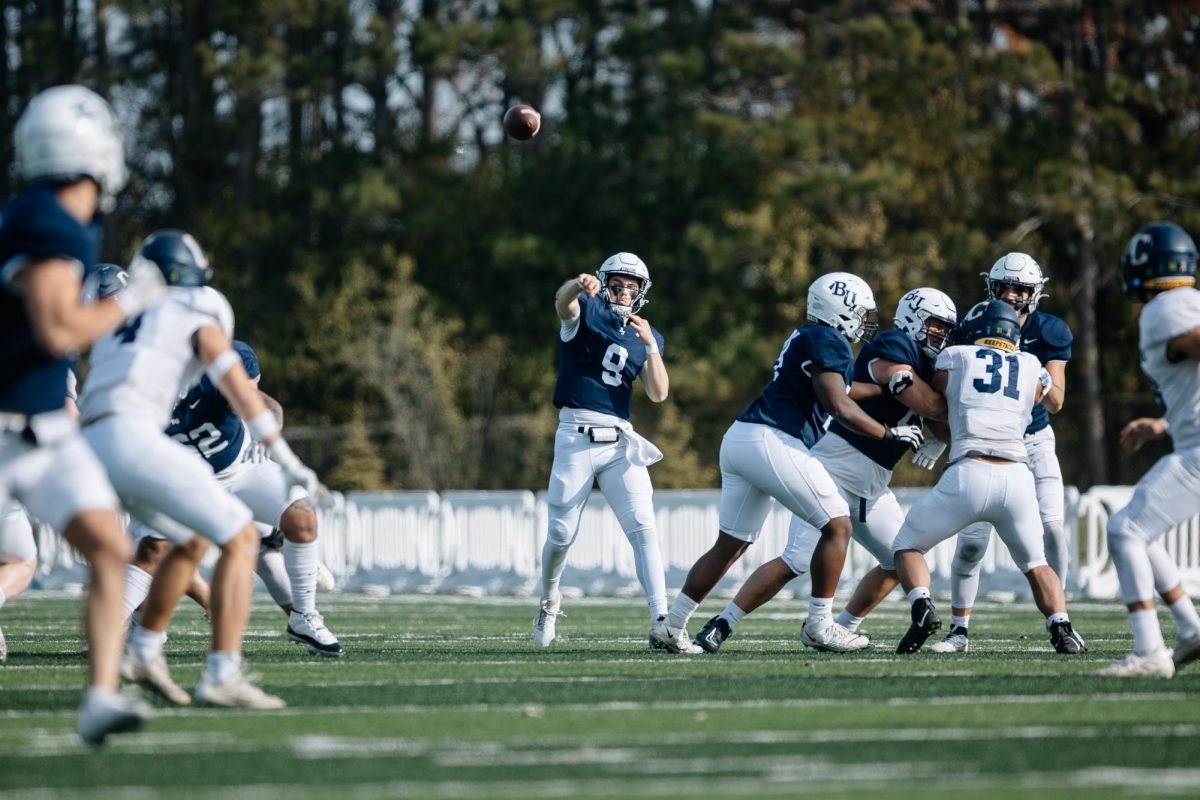




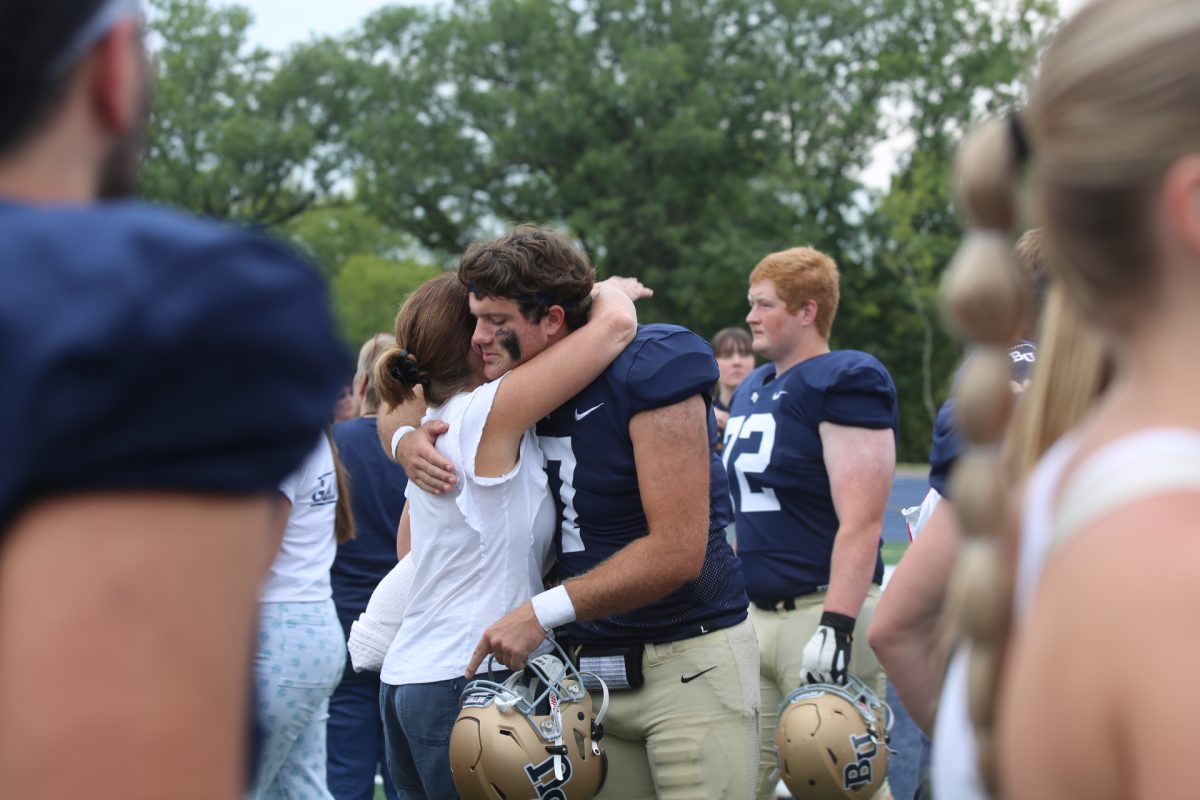
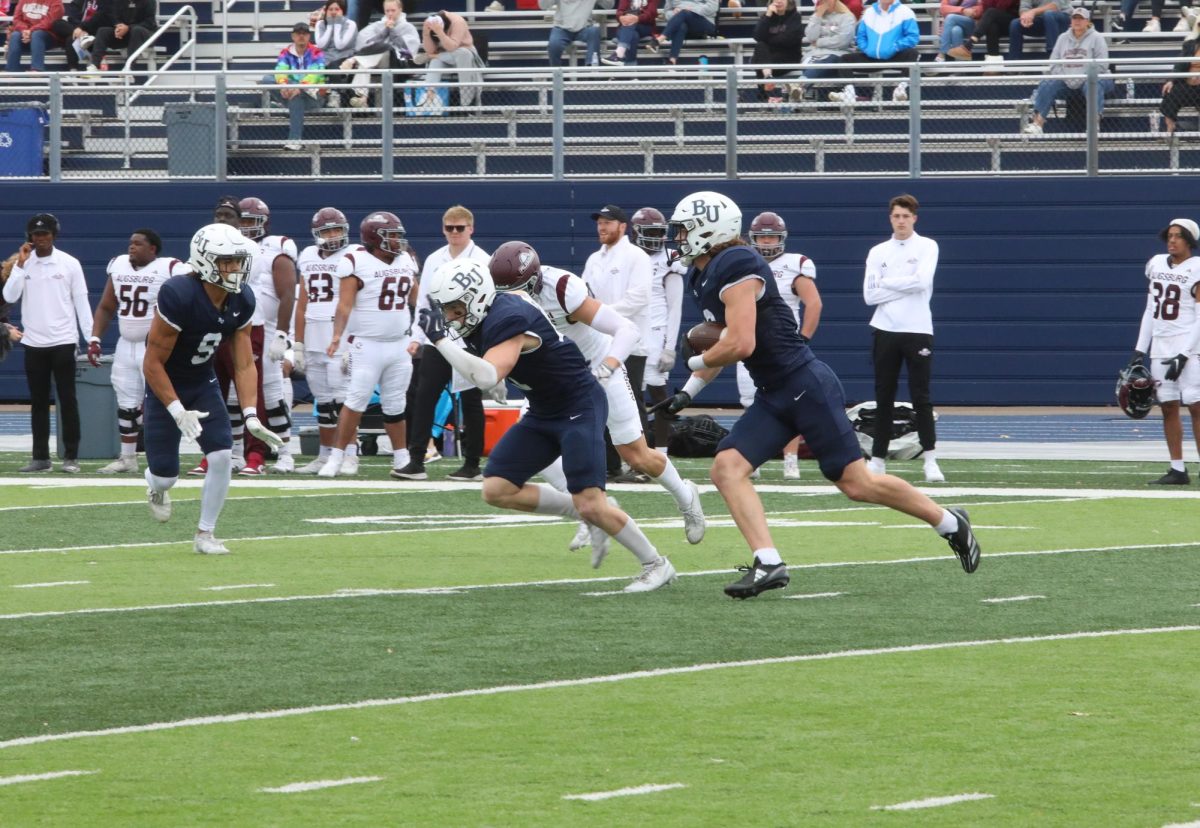
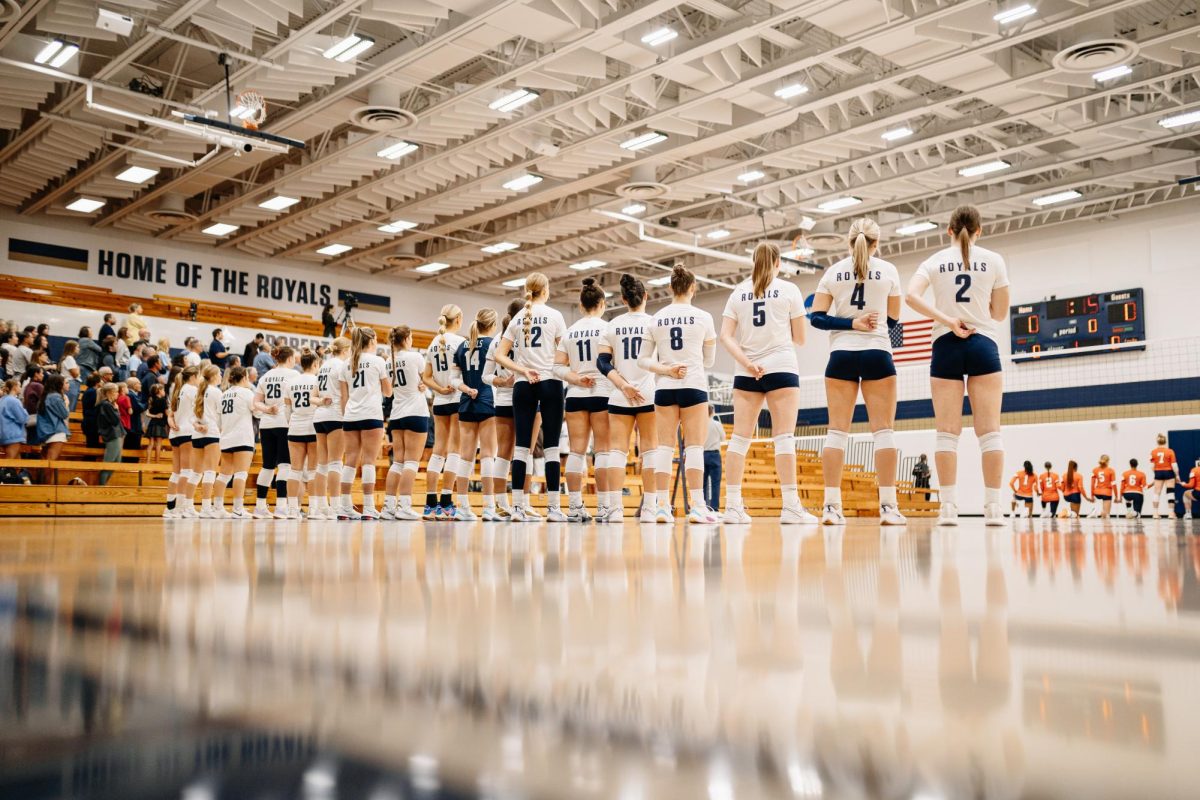
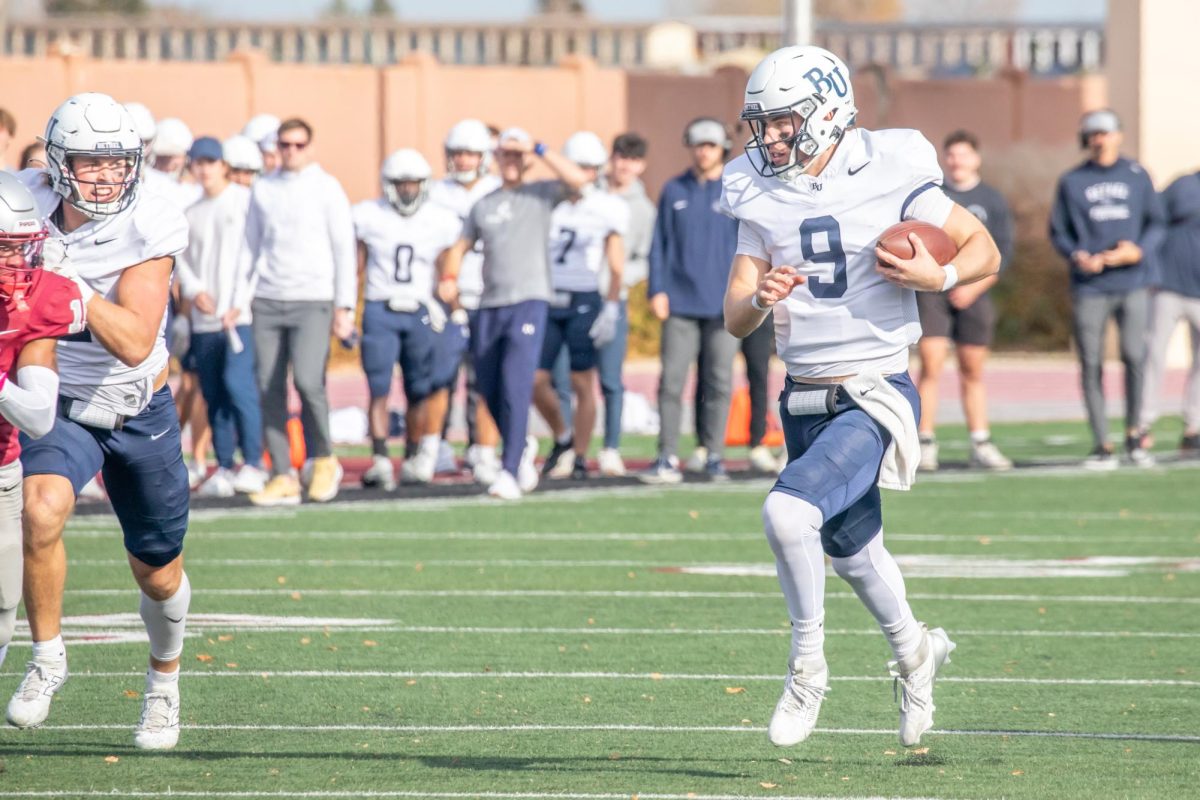
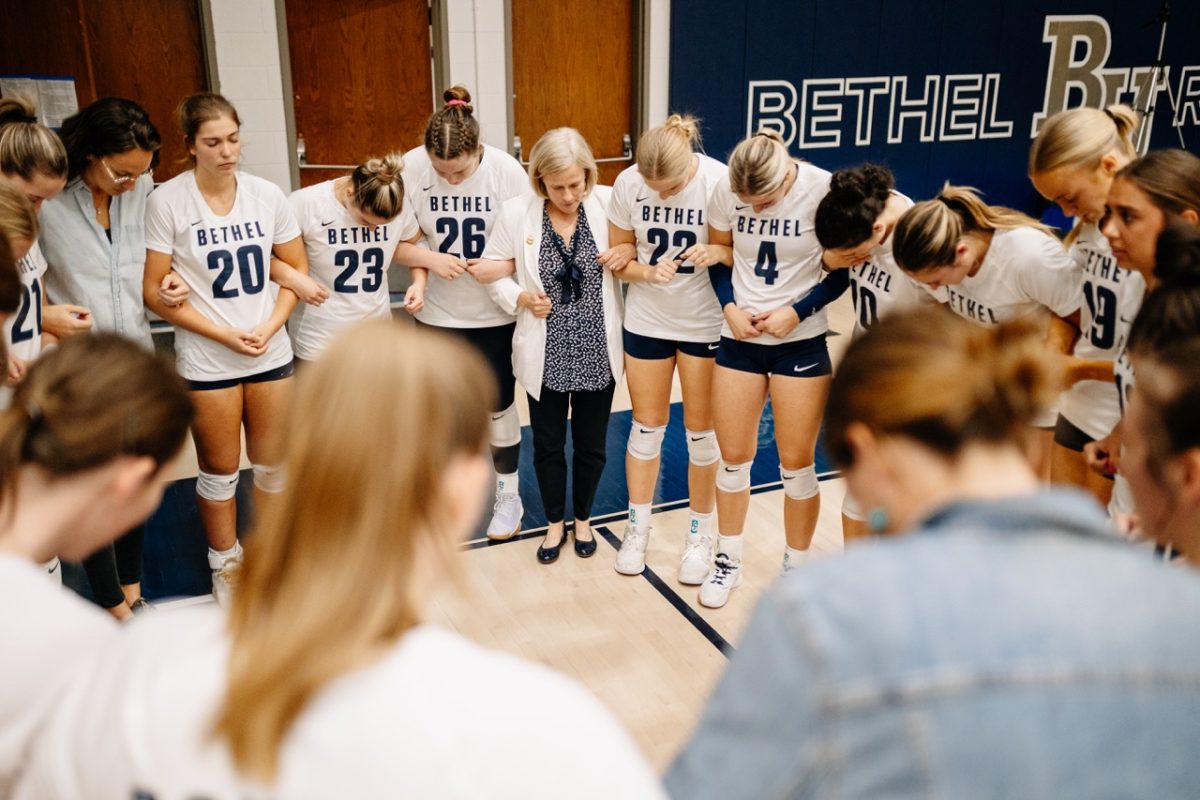
![Senior Bethel receiver Micah Niewald sheds a would-be tackler on his way to a touchdown in the Royals’ 73-8 win over Augsburg Saturday. Niewald sped his way to two touchdowns in the win, tallying 62 yards after the catch between the two scores. “Knowing I can outrun the guy that’s chasing me is a big thing,” Niewald said. “That’s going back to [strength and conditioning] Coach Meyer and everything we do in the summer and off-season.” | Photo by Carl Schumland, Bethel Athletics](https://thebuclarion.com/wp-content/uploads/2024/10/3J9A1632-1200x800.jpg)